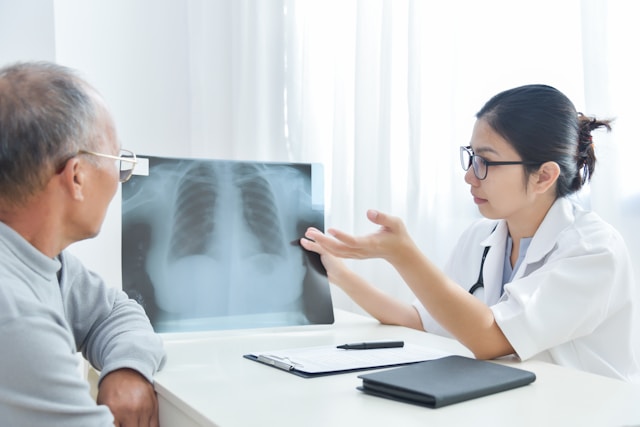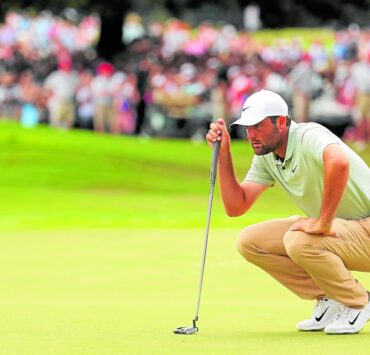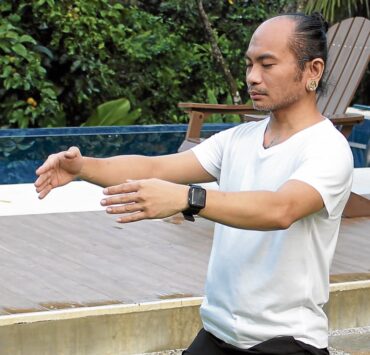RSV: This cold, flu-like bug is a threat to older adults
- Its symptoms often mimic those of COVID-19, and it’s transmitted through respiratory droplets

Respiratory syncytial virus (RSV), typically associated with mild, flu-like symptoms, has been a cause for concern in recent years. While it primarily affected young children before the pandemic, there has been a significant rise in RSV cases among older adults, particularly during the winter months in North America. Given the Philippines’ wet season, healthcare professionals are urging the public to exercise caution.
As a seasonal virus, RSV typically circulates from September to March in the Philippines. The current spike in cases has led to an increase in both infections and hospitalizations.
Dr. Lourdes Dumlao, a specialist in geriatric medicine, notes that RSV has not been widely recognized until recently, thanks to the availability of advanced testing methods such as BioFire Diagnostics in major hospitals. Previously, RSV tests were limited to specialized laboratories. With the new capabilities, findings have highlighted the rise of RSV infection in both children under 5 and adults over 60.
RSV symptoms often mimic those of COVID-19 and influenza, including cough, runny nose, sore throat, headache and body aches. Consequently, a test is necessary to accurately diagnose RSV and differentiate it from other respiratory illnesses. “All of these infections can become serious, especially in the older population, as they are more vulnerable to complications,” says Dr. Dumlao.
Some RSV cases may result in upper respiratory infections such as bronchitis. Lower respiratory infections such as pneumonia can lead to severe complications and increased mortality risk, particularly for older patients with underlying health conditions like heart problems, diabetes, lung issues and asthma. RSV will worsen the condition of individuals with asthma or chronic obstructive pulmonary disease.
Spreads through droplets
Like COVID-19, RSV is transmitted through respiratory droplets. Simply being near an infected person who coughs, sneezes or talks can increase the risk of transmission.
“For every patient infected with RSV, they can potentially infect three others. RSV often spreads in outbreaks within households,” explains Dr. Dumlao. “Many cases can be traced back to exposure from younger family members.”
While older adults should not become overly paranoid about casual interactions with friends, it’s important to exercise caution, especially if you or your loved ones have underlying health conditions. RSV is not airborne, but rather spreads through direct contact with infected individuals, particularly young children. “If your immune system is strong, you may not develop an active infection even after exposure,” she explains.
Unlike COVID-19, which was a novel virus discovered in 2019, RSV has been circulating for a long time. Despite its presence, it may not have been widely identified in the past due to limited testing capabilities.
“RSV and COVID-19 share similar characteristics, with both having a round spike protein,” says Dr. Dumlao. “While RSV outbreaks have occurred, they may not have been recognized as such without routine testing.”
The cost of RSV diagnostic testing can be a barrier for many. BioFire tests can range from P13,000 to P20,000, making them prohibitive for routine use.
“We don’t recommend testing everyone with a cough and cold for RSV,” says Dr. Dumlao. “However, it can be valuable for older patients with underlying health conditions, as it helps guide treatment decisions.”
Similar management
In cases where patients are hospitalized for pneumonia and their symptoms are not improving with standard treatments, a BioFire test can be helpful. “It can reveal if the antibiotics are not effectively addressing the underlying RSV infection,” explains Dr. Dumlao.
The management of RSV is similar to that of COVID-19. Mild cases typically resolve within a week or two with adequate rest and hydration. However, for older adults with weakened immune systems or comorbidities, RSV can pose a significant risk. “The treatment approach is primarily symptomatic, addressing the specific symptoms that arise,” says Dr. Dumlao.
To prevent the spread of RSV, individuals can implement various nonpharmacological interventions. These include practicing good hygiene, wearing masks when sick, washing hands frequently and avoiding crowded areas. Additionally, vaccination provides added protection for individuals over 60 with comorbidities.
Some vaccines were medically approved in the United States last year. An adult RSV vaccine, developed by GSK, is available in the Philippines. This FDA-cleared vaccine targets a protein that the virus uses to enter human cells.
The New York Times quotes advisors to the Center for Disease Control and Prevention as saying adults age 74 and older are advised to receive a single dose of the RSV vaccine. For adults age 60 to 74, the vaccine is recommended only for those with comorbidities or serious health conditions. Individuals in this age group without comorbidities may consider the vaccine after consulting with their doctors to assess their individual risk of RSV infection. The RSV vaccine is intended to be administered as a single dose.
Patients seeking information about RSV or the vaccine can consult with pulmonologists, infectious disease specialists or geriatricians.
By understanding the risks and taking appropriate precautions, older adults can help protect themselves from RSV infection and its potentially severe consequences.

















